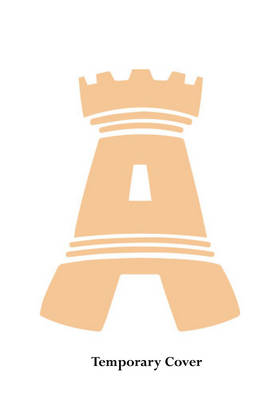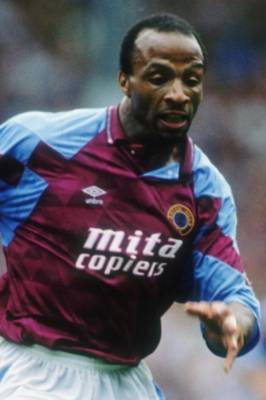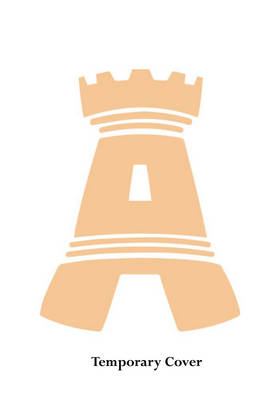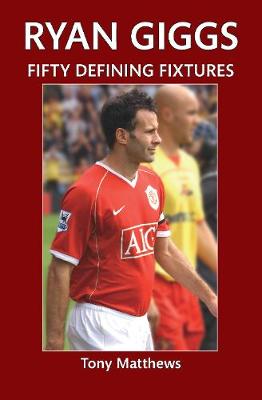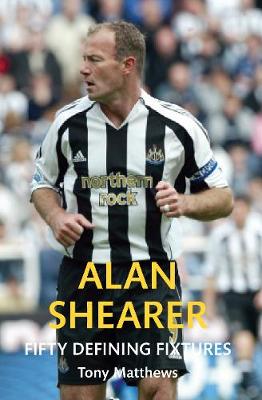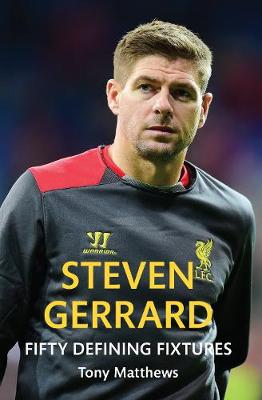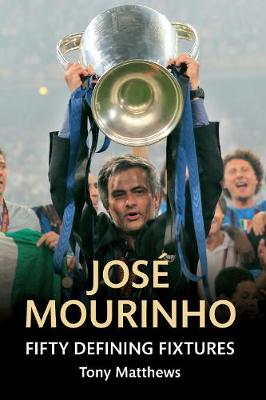Fifty Defining Fixtures
7 total works
Born in County Durham in 1933, Bobby Robson started his career at Fulham before moving to West Bromwich Albion, scoring 61 goals in 257 first-class appearances and winning 20 full caps for England (1957-62). He returned to Fulham, where he ended his playing career, in 1967. But it was as a manager that Bobby really made his mark on the game. He had always been a model competitor; a hard-grafter with great awareness who could inspire his team-mates. These characteristics stood him in great stead during his long and distinguished managerial career, which began at Fulham but took off during his thirteen years in charge at Ipswich Town, leading them to FA Cup and UEFA Cup final victories in 1978 and 1981 and to runner's-up spot in the First Division, also in 1981. After managing England from 1982 to 1991, taking them to a World Cup semi-final for the first and only time since 1966, Robson managed PSV Eindhoven, Sporting Lisbon, FC Porto and Barcelona before spending five years in charge of Newcastle United (1999-2004).
Awarded the CBE in 1991, knighted in 2002, granted the Freedom of Ipswich in May 2008 and made a Freeman of the City in Durham seven months later, he was also presented with a Special Lifetime Achievment Award by UEFA. In Sir Bobby Robson: fifty Defining Fixtures, football writer Tony Matthews examines the career of the great man and remembers the games that have defined one of the most respected and successful football managers of the modern era.
Awarded the CBE in 1991, knighted in 2002, granted the Freedom of Ipswich in May 2008 and made a Freeman of the City in Durham seven months later, he was also presented with a Special Lifetime Achievment Award by UEFA. In Sir Bobby Robson: fifty Defining Fixtures, football writer Tony Matthews examines the career of the great man and remembers the games that have defined one of the most respected and successful football managers of the modern era.
Known as 'Smokin Joe', Cyrille Regis spent seven wonderful years with West Bromwich Albion. A huge favourite with the Baggies' fans from the day of his debut when he scored twice in a 4-0 home League Cup victory over Rotherham United in August 1977, he found the back of the net on a regular basis, scoring some quite spectacular and breathtaking goals in a total of 112 in 302 senior appearances for Albion. Strong, muscular and aggressive, he had a terrific shot, his heading ability was top-class and he could leave opponents standing with his devastating speed over 25 to 30 yards. A snip of a signing from non-League Hayes by Albion manager Ronnie Allen, he went on to win England recognition at full, 'B' and U21 levels, was voted PFA 'Young Footballer of the Year' in 1979 and took the runner's-up prize behind 'Footballer of the Year' Steve Perryman in 1982. Three years after leaving The Hawthorns, Regis helped Coventry win the FA Cup in 1987. He scored over times 50 times for the Sky Blues, and after that was on target for Aston Villa, Wolves, Wycombe Wanderers and Chester City.
Also in 1987, Regis was voted The Evening Mail's 'Footballer of the Year' and was chosen as the Midlands Soccer Writer's 'Player of the Year'. In May 1996, aged 37 years and 86 days, Regis became the oldest player ever to turn out in a League game for Wycombe and during his career, he netted over 200 goals in more than 700 club games. He returned to The Hawthorns as Albion coach (1997-2000). In 2008, he was awarded the MBE in the Queen's Birthday Honours' List.
Also in 1987, Regis was voted The Evening Mail's 'Footballer of the Year' and was chosen as the Midlands Soccer Writer's 'Player of the Year'. In May 1996, aged 37 years and 86 days, Regis became the oldest player ever to turn out in a League game for Wycombe and during his career, he netted over 200 goals in more than 700 club games. He returned to The Hawthorns as Albion coach (1997-2000). In 2008, he was awarded the MBE in the Queen's Birthday Honours' List.
Paul John Gascoigne, known by many of his fans as 'Gazza', was born on 27 May 1967. Described by the National Football Museum as 'the most naturally gifted English midfielder of his generation', his skills in midfield saw him earn 57 England caps. Signing as a schoolboy at Newcastle United, he turned professional in 1985 before moving onto Tottenham Hotspur in 1988. His career saw him play for Lazio, Rangers (his highest number of appearances at a club of 105), Middlesbrough, Everton, Burnley, Gansu Tianma and ending his career at Boston United. Helping the English team to reach the semi-finals of UEFA Euro 1996, his incredible goal against Scotland saw him cement his scoring capability in the national consciousness. Gazza's passionate nature often saw him clash with referees and players alike, though this passion could create storming results, helping Rangers win the Scottish League title in 1996/97 with hat-tricks against Kilmarnock and Motherwell. Charting Gazza's national and international career highs, Tony Matthews outlines why Paul Gascoigne deserves to be recognised as a legend of the beautiful game.
Ryan Joseph Giggs OBE (born 29 November 1973) is a former Welsh football player who played most notably for Manchester United and the Welsh national team. He debuted at Manchester United in 1991 and played predominantly as a left-winger but in his later years as a central midfielder. He also captained the Great Britain team in the 2012 London Olympics. He is the most decorated player in football history with among other honours thirteen Premier League winner's medals, four FA Cup winner's medals and two Champions League winner's medals.
He retired from football in 2014 with 931 games at United under his belt and 64 caps for Wales. He is currently assistant manager at Manchester United and co-owner of Salford City. Delving into Giggs' most notable fixtures, Tony Matthews outlines what games defined Ryan Giggs' career and what made him one of the most recognised players of his generation.
He retired from football in 2014 with 931 games at United under his belt and 64 caps for Wales. He is currently assistant manager at Manchester United and co-owner of Salford City. Delving into Giggs' most notable fixtures, Tony Matthews outlines what games defined Ryan Giggs' career and what made him one of the most recognised players of his generation.
Alan Shearer OBE (born 13 August 1970) is an English footballer whose prowess saw him score a hat-trick in his professional debut in 1988 while playing for Southhampton. Leaving Southhampton in 1992, Shearer went on to play as a striker for Blackburn Rovers and Newcastle United, where he stayed until the end of his career in 2006. Widely regarded as one of the world's best strikers, his goalscoring talent saw him bcome both Newcastle's and the Premier League's top goalscorer in the 1995/96 season.
During his career as a player, he captained England in 1996 and Newcastle from 1999 and scored a massive 283 league goals, of which 260 were in the Premier League, and a recored eleven Premier League hat-tricks. Named Football Writers' Association Player of the Year in 1994 and the PFA Player of the Year in 1995, Shearer is one of the greatest footballers England has produced. In Alan Shearer: Fifty Defining Fixtures, Tony Mathews oulines why Alan Shearer deserves to be recognised as a legend of the beautiful game.
During his career as a player, he captained England in 1996 and Newcastle from 1999 and scored a massive 283 league goals, of which 260 were in the Premier League, and a recored eleven Premier League hat-tricks. Named Football Writers' Association Player of the Year in 1994 and the PFA Player of the Year in 1995, Shearer is one of the greatest footballers England has produced. In Alan Shearer: Fifty Defining Fixtures, Tony Mathews oulines why Alan Shearer deserves to be recognised as a legend of the beautiful game.
Steven George Gerrard MBE (born 30 May 1980) is an English footballer who plays for and captains Premier League club Liverpool. He has played much of his career in a centre midfield role, but also as a second striker, holding midfielder, right-back and right-winger. Gerrard, who has spent his entire career at Anfield, made his debut in 1998 and cemented his place in the first team in 2000, succeeding Sami Hyypia as team captain in 2003. His honours include two FA Cups, three League Cups, two Community Shields, one Champions League, one UEFA Cup, and two Super Cups.
On 21 July 2014, Gerrard announced his retirement from international football. With 114 caps for England he is the third most capped player ever, after Peter Shilton (125) and David Beckham (115). Tracing Gerrard's most notable fixtures, Tony Matthews outlines why Steven Gerrard deserves to be recognised as a legend of the game.
On 21 July 2014, Gerrard announced his retirement from international football. With 114 caps for England he is the third most capped player ever, after Peter Shilton (125) and David Beckham (115). Tracing Gerrard's most notable fixtures, Tony Matthews outlines why Steven Gerrard deserves to be recognised as a legend of the game.
Fifty matches that shaped the career of one of football's greatest managers...
JOSE MOURINHO is regarded by some to be the world's best manager and one of the greatest of all time. Starting out as a player in the Portuguese Second Division, he later impressed with successful managerial periods at Benfica and Uniao de Leiria. As head coach to Porto, he won the Primeira Liga, Taca de Portugal and UEFA Cup in 2003. Moving to Chelsea the following year, they won the Premier League title with a record 95 points and the League Cup in his first season. In 2013, after several years with Serie A club Internazionale, Mourinho returned to Chelsea, taking the club to third in the Premier League in season 2013/14.
JOSE MOURINHO is regarded by some to be the world's best manager and one of the greatest of all time. Starting out as a player in the Portuguese Second Division, he later impressed with successful managerial periods at Benfica and Uniao de Leiria. As head coach to Porto, he won the Primeira Liga, Taca de Portugal and UEFA Cup in 2003. Moving to Chelsea the following year, they won the Premier League title with a record 95 points and the League Cup in his first season. In 2013, after several years with Serie A club Internazionale, Mourinho returned to Chelsea, taking the club to third in the Premier League in season 2013/14.
